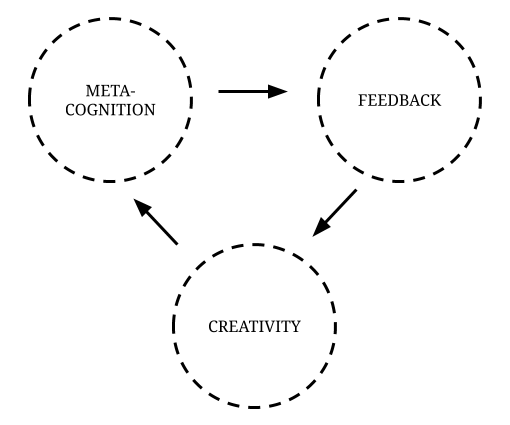Should you share your work in progress and learn in public? Lots of research has been conducted to determine whether sharing your goals in public was a good thing or a bad thing.
Some studies show that people are more likely to do stuff if they keep their intentions private. Basically, goal sharing may give us the same psychological satisfaction of accomplishing a goal without having to do the actual work: because you often receive premature praise from other people, talking becomes a substitute for doing.
What other studies show, though, is that sharing your progress can be beneficial: for example, sharing your weight loss progress on Twitter is a great way to stay motivated.
Why is this the case? Because you are then receiving praise about the process (the actual work) and not about your identity (the way you present yourself). Which has been proven to be much more effective to stay motivated.
“Become a documentarian of what you do.”
Austin Kleon, author of Show Your Work.
Creating feedback loops
Learning in public means sharing your process and challenges, rather than just the final product. There are many reasons why I believe you should work and learn in public and share your progress openly, but I’ll focus on the four main ones.

- Develop your metacognition. Sharing your work and learning in public will allow you to reflect and plan your next steps. Instead of just plowing through work, sharing it with people who lack the context you have will force you to think about your approach, strategies, and progress in a deeper way.
- Get early feedback. Many people make the mistake of working behind a closed door then launching or presenting something to the world, expecting everyone to rush and use it. Don’t miss out on the opportunity to improve your work through multiple revisions. Learning in public will allow you to take a more iterative approach, and ensure that what you’re working on answers the need you have identified.
- Increase your creativity. Great ideas are often the result of a network of information in a transparent community. By sharing your ideas, you will increase the likelihood of connecting the dots between your ideas and other people’s ideas, thus creating your mini experiment lab with other researchers.
In addition, learning in public is a great way to connect with people who are interested in a similar space. It may result in finding a mentor, or even lead to partnerships. While you keep on focusing on the work itself, you will start receiving inbound requests.
All of the partnerships, sponsorships, and consultancy work I’ve had were all inbound. People read my blog, reach out, and we figure out how we want to work together. I strongly believe this would not be possible if I was conducting my research and building products without sharing my progress on a weekly basis.
How to learn in public
You may be afraid someone will steal your idea. Or you may suffer from impostor syndrome and think that you’re work is not good enough to be shared in public. But working on an idea in a vacuum stifles the creative process. While it may feel uncomfortable at first, sharing your work in progress on a regular basis will become easier over time.
- Make it easy. Learning in public can be nerve-wracking at first, so make it as easy as possible. This could be sharing a short tweet about your progress, or a quick update in a Slack channel. You don’t need to start blogging daily when it’s your first time sharing your work in progress.
- Find your tribe. You will realise that some people are extremely supportive, while the vast majority is indifferent. Find the people who care, and connect with them. This may mean joining an online group, or attending offline meetups.
- Build a habit. Make sharing your work in progress and questions a part of your overall process. Commit to posting once a week or whatever frequency feels comfortable to you. There are great tools for this, such as Makerlog or Product Hunt Makers — both public to-do lists allowing you to mark tasks as done and receive support from the community.
Once you feel more comfortable, you can take it up a notch with blogging, live streaming, or podcasting. There are lots of great tools that make it easy to launch a platform to share your work without spending too much time building it. But, again, it’s not necessary.
Learning in public should not derail you from doing the actual work. Done properly and in a way that fits within your workflow, it will dramatically increase your productivity and creativity. Once you get into the habit, it will almost feel strange to work and learn in a vacuum.
